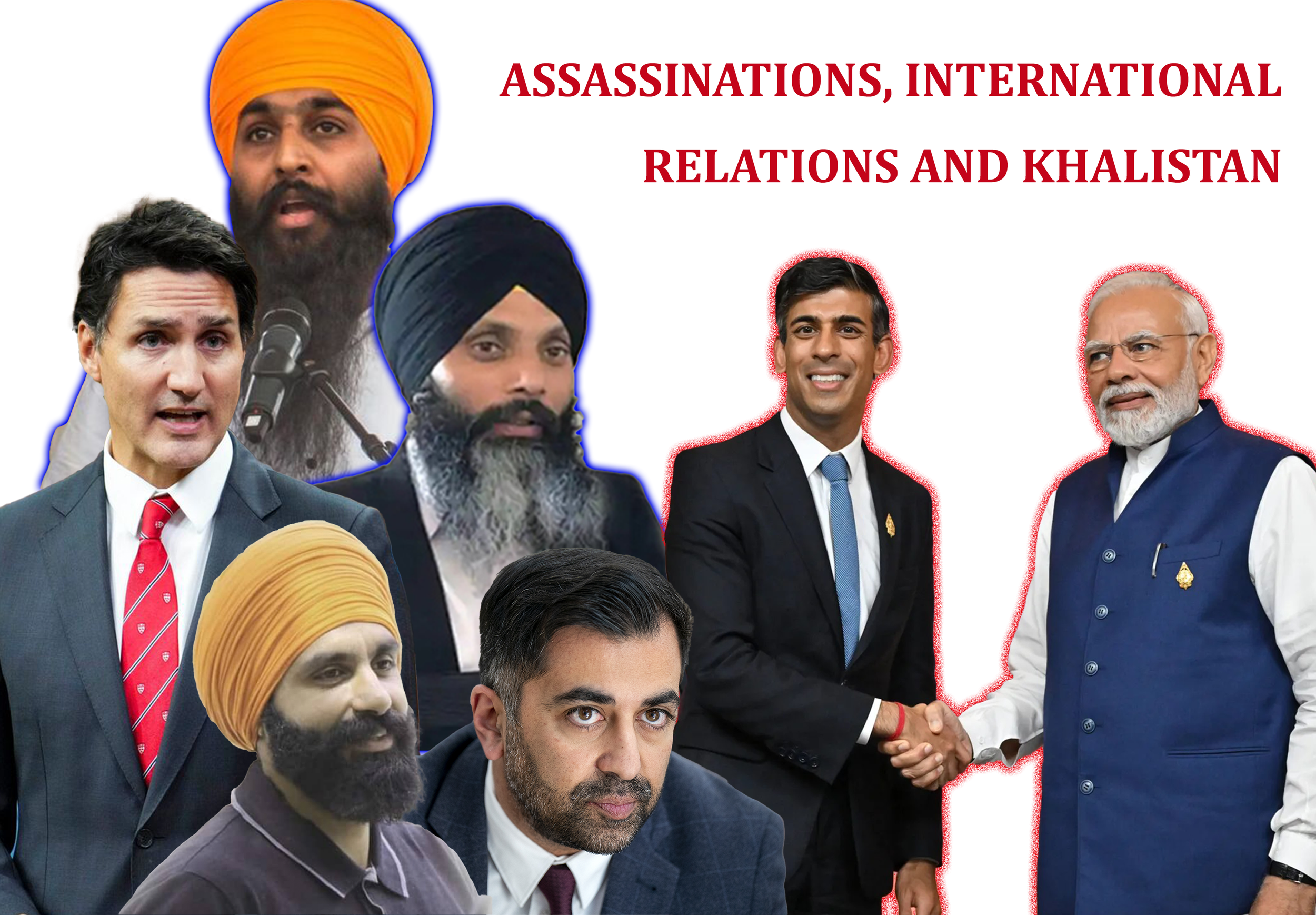The Sikh stand against Hindutva Inspired Hypernationalism
/
In recent years, emboldened by a newfound hypernationalism fuelled by Hindutva, India has raised its efforts to subsume every other walk of life. This extreme form of nationalism emphasizes the superiority of the Indian nation state and its identity over others. It is often associated with a belief in the inherent greatness of the Indian state and its people, and a strong sense of national pride. India’s hypernationalism fuelled by Hindutva has manifested itself in a variety of ways, including in an aggressive use of force or the threat of force to assert India's power and influence in the world. This has included military aggression, economic coercion, and subjugation within its own borders.
The promotion of Indian nationalist culture as superior to those of other minoritsed and marginalised groups has led to the imposition of cultural norms and practices on minority groups. Aside from its genocidal policies that are well documented by Human Rights Organisations, other policies such economic ones that prioritize the interests of Indian nationalism, are prevalent within business, media and journalism.
India currently ranks 161 out of 180, on the World Press Freedom Index. Analysts at Reporters Without Borders have outlined that,
"The other phenomenon that dangerously restricts the free flow of information is the acquisition of media outlets by oligarchs who maintain close ties with political leaders. This is particularly the case in “hybrid” regimes such as India (161st), where all the mainstream media are now owned by wealthy businessmen close to Prime Minister Narendra Modi. At the same time, Modi has an army of supporters who track down all online reporting regarded as critical of the government and wage horrific harassment campaigns against the sources. Caught between these two forms of extreme pressure, many journalists are, in practice, forced to censor themselves."
Sikhs will remember the Farmers Protest in which all of the above became abundantly clear when links were shown between Modi’s government and the likes of Mukesh Ambani, who owns the likes of NDTV, News Nation, India TV, News24 and Network 18, all of whom are guilty of misinformation and sensationalised reporting that reinforces the country’s hypernationalist rhetoric. The world saw how Indian media outlets vilified the farmers from Panjab and constantly downplayed the legitimacy of their movement, and we’re seeing it again.
Over the years, we have seen how any voice of dissent has been stringently suppressed, any advocate for Khalistan has been vilified and criminalised. In India separatists are synonymised with the term "terrorist", whether that's an active militant, journalist, academic or peaceful activist. India has proven time and time again, through the policies of consecutive governments, that it is incapable of running the country without the constant threat of violence.
This position has enabled its hypernationalism which has led to increased tensions with other countries, including with Canada following the murder of Khalistani activist Hardeep Singh Nijjar. As the government of India seeks to maintain a unified front, it only increases the risk of conflict, suppression of dissent and criticism.
India has a history of espionage, like other nation states, but it has taken an audacious step in an attempt to send a bold message to Sikh activists dedicated to Khalistan. Whilst the official line from India is one of denial, cracks are appearing in the form of overzealous journalists and political commentators across social media, who cannot contain their joy at the murder of a Khalistani.
Political commentators in India have accused the West of hypocrisy because of their own record of foreign terrorism, but in reality, this only solidifies the charges brought against India and weakens their position. Deep down Indian nationalists from across the political spectrum, are proud of India’s actions and will do everything within their power to maintain the status quo. At the centre of India’s Hindutva inspired hypernationalism lies a grumbling sense of insecurity. This is evident in the often simple and emotionally appealing narratives: that the nation is under threat, and they must do everything to annihilate this threat. However, this narrative oversimplifies complex issues, and leads to further intolerance, division, and conflict.
The Western world has always had a vested interest to preserve the fallacy that India is a democracy, not just for reasons of trade and labour, but because of wider geopolitics. On the other hand, the Sikhs, and other minoritised and marginalised peoples in India have known the real face of India that lurks behind the mask of democracy.
As heirs of sovereign power in Panjab and inspired by a Guru-ordained decree to stand against injustice, the Sikhs have been agitating against New Delhi, and holding it to account, ever since it began to renege on its own constitutional vows. From civil disobedience campaigns in the 1950s and 1960s to a resistance more in line with historic Sikh mobilisation, such as that of the 1980s and 1990s which propelled the Khalistan movement, all avenues have been kept open by the Sikhs.
The reality is the Indian state was manufactured by colonisers, it never existed in this form before in history. Forcing one homogeneous label on such a diverse region consisting of 1.4 billion people was a recipe for fascism and tyranny. Following Canada's decision to levy strong charges akin to an act of foreign terror, the wider world is beginning to see how the Indian project is a blemish on civilised humanity, a charge which the the Sikhs have raised with unwavering resolve for decades.




